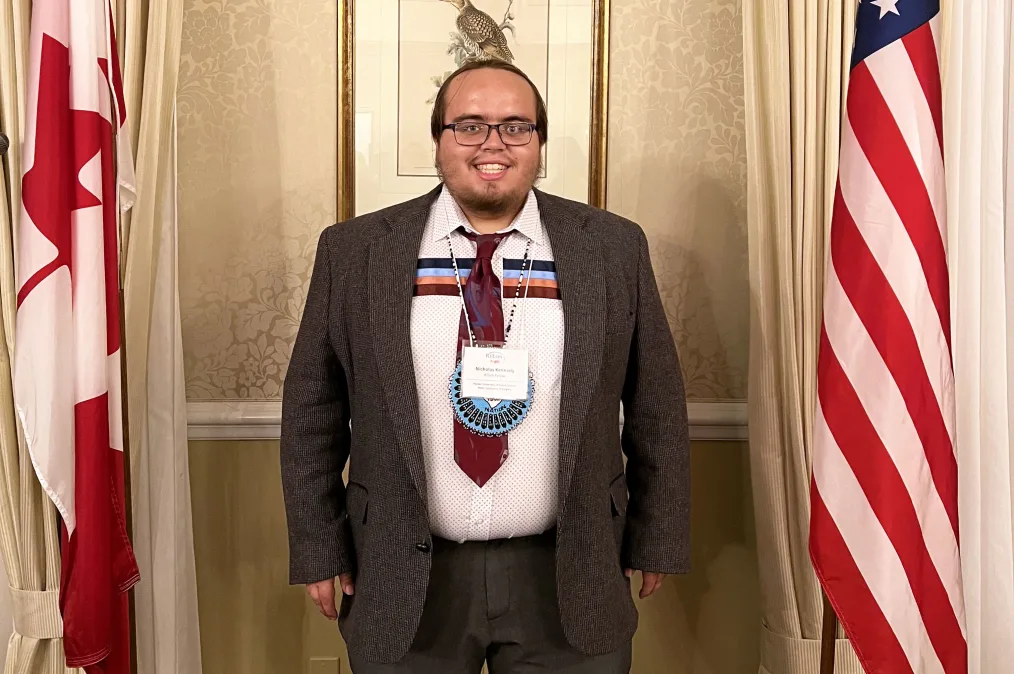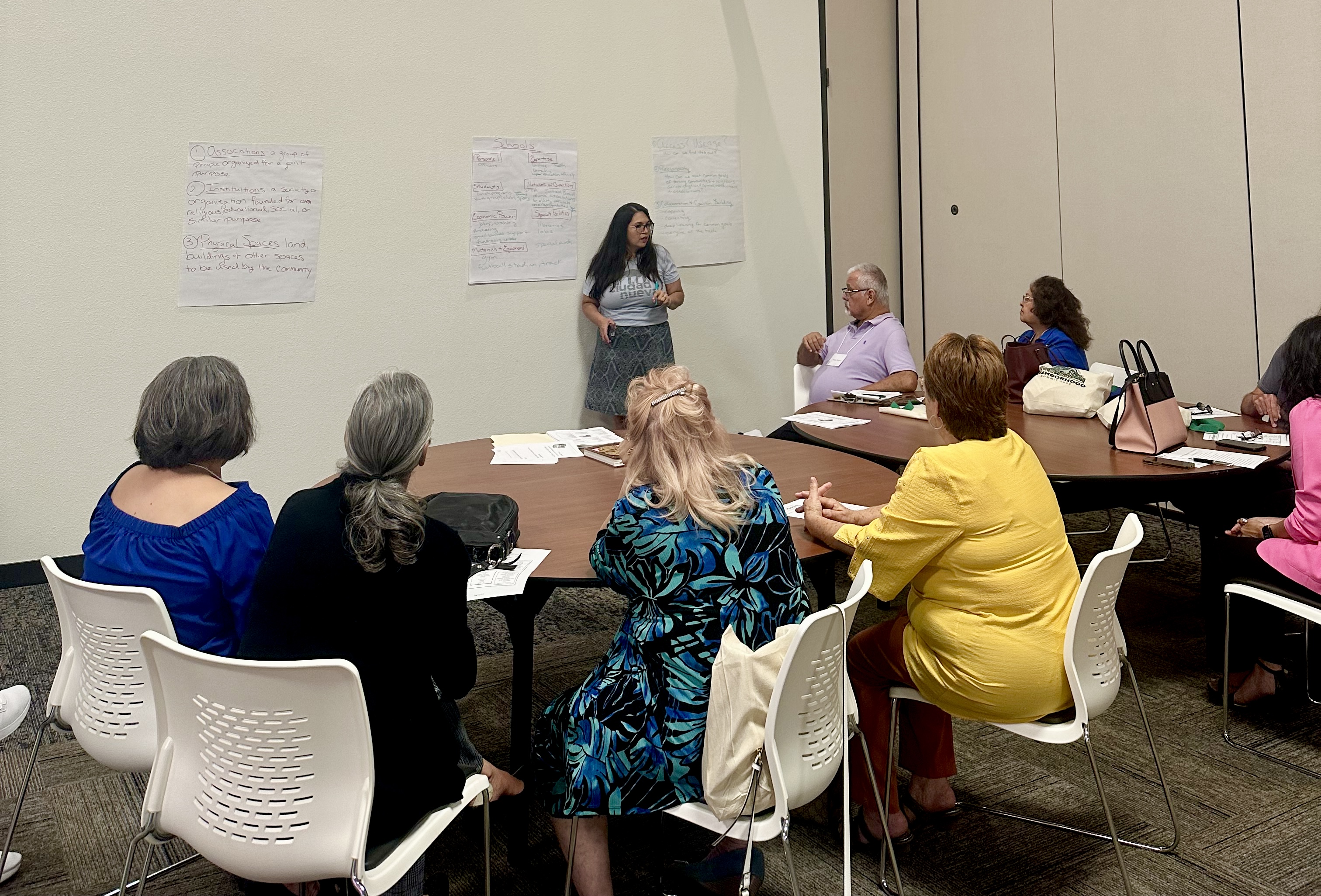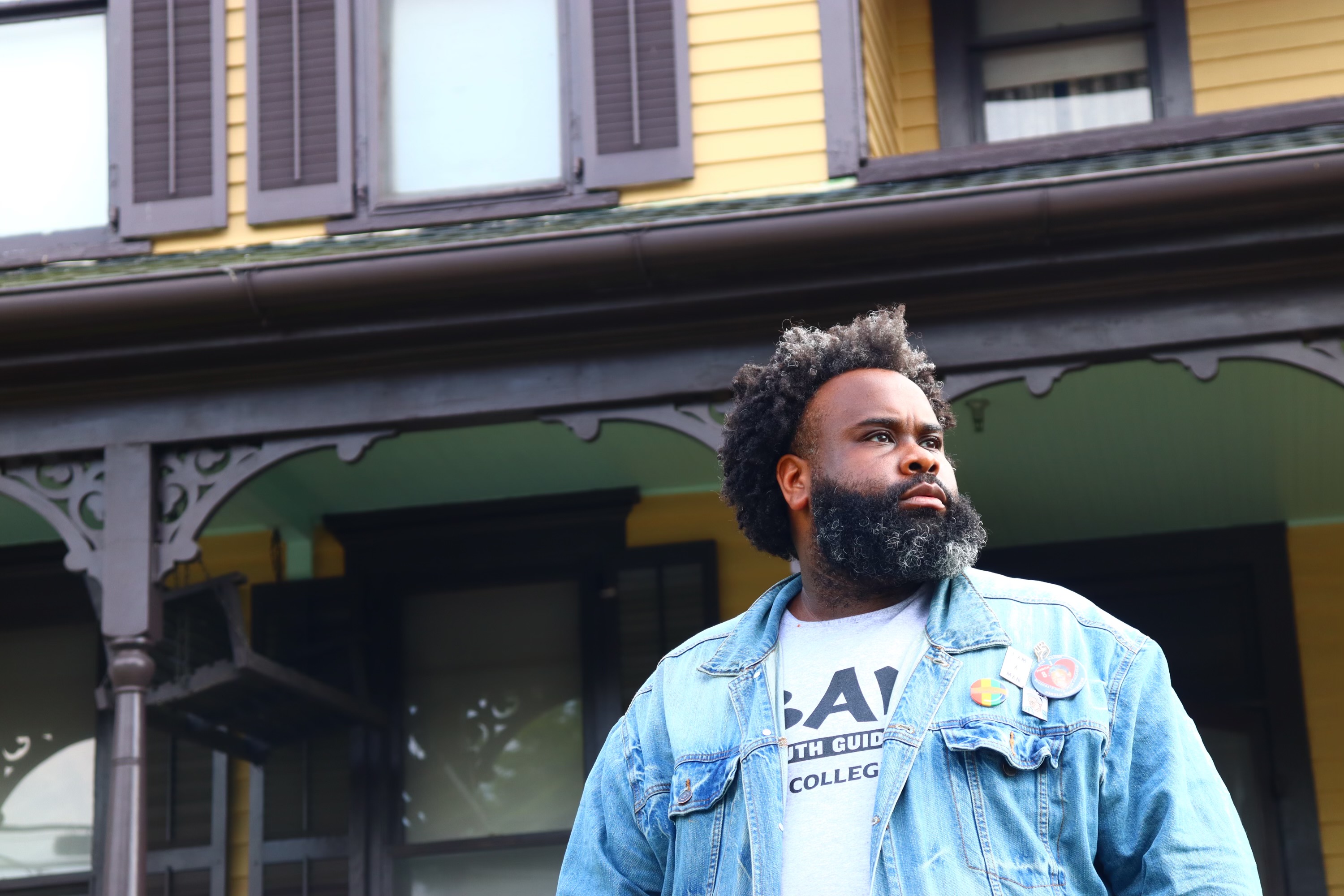Nick Kennedy, a 2022-2024 Obama-Chesky Scholarship for Public Service recipient , is a rising leader who is proud of his Indigenous culture. In his personal life and through his collegiate studies at the University of South Dakota, Nick is advocating for the preservation of Indigenous culture and traditions.
Ahead of Indigenous Peoples’ Day, we spoke with the Voyager about his recent Summer Voyage, his passion for preserving his family's history, and what’s next for the young changemaker.
Growing up in Lawrence, Kansas in an urban Native community, Nick missed the opportunity to be surrounded by his Blackfoot culture. It was during his time studying abroad at the University of Calgary that Nick’s inspiration for a career in law strengthened.
Nick’s great grandparents were both boarding school survivors (Opens in a new tab) . Recent studies have described Native American boarding schools as dangerous, identity stripping, and in many ways physically and mentally unsafe.
“In that period of American history, Indigenous People were stripped of their culture and language,” Nick explained. “Not growing up in my culture, it felt like it was necessary to sort of preserve what is left in terms of Indigenous culture and Blackfoot culture.”
As he’s continued his higher education studies, Nick has found that an effective way to advocate for his people is through the retention of cultural practices and sovereignty. His long-term goal is to become a lawyer and examine the legal disparities in reservation communities.
“I feel like doing that as an attorney would blend my intellectual interests relating to Blackfoot culture and the law, specifically the sovereignty of Indigenous People,” Nick shared. “And by becoming an attorney I’d be able to navigate those systems a little bit better.”
As part of the Obama-Chesky Scholarship for Public Service program, Nick chose to spend his Summer Voyage at The Plains Indian Museum (Opens in a new tab) in Cody, Wyoming, which is part of the Buffalo Bill Center of the West (Opens in a new tab) . Throughout his time at the museum, he worked closely with artifacts that highlighted the lives of Plains Indian peoples, cultures, and traditions.
As October 9 marks Indigenous Peoples’ Day, Nick reflected on what the cultural holiday means to him.
“To me every day is Indigenous Peoples’ Day,” Nick said. “I think about Blackfoot culture everyday, especially since that was something that was taken away from my family. I think Indigenous Peoples’ Day is an excellent opportunity for an educational day. Indigenous People are not a monolithic people. There are many different tribes, each with their own history, traditions, and ways of doing things. I’m happy that people are recognizing the day more, and I think ultimately with these types of recognition there should be more outreach and education to other non-Indigenous, so that people understand different ways of knowing.”
Nick’s advice to those wondering how they can honor Indigenous People on this cultural day: Try and view things from the tribal perspective.
“If I were to encourage someone to do more research, I would first tell them to prioritize Indigenous scholars and Indigenous sources. If you want to know more about a specific tribe or a specific community, I would encourage them to look at each of the tribal nation’s websites.”
Ultimately, every tribal nation has different unique cultural practices, and you can’t classify them all as one people, Nick explained.
“It’s also important to realize Indigenous People are contemporary people; they’re not somebody that’s living in the past. Say, bows and arrows. There is a contemporary component to indigeneity. We are living in the present, here and now.”
*Nick Kennedy is a First-Generation Registered Descendant of the Blackfeet Nation. He is also a descendant of the Confederated Salish-Kootenai Tribes in Western Montana.






